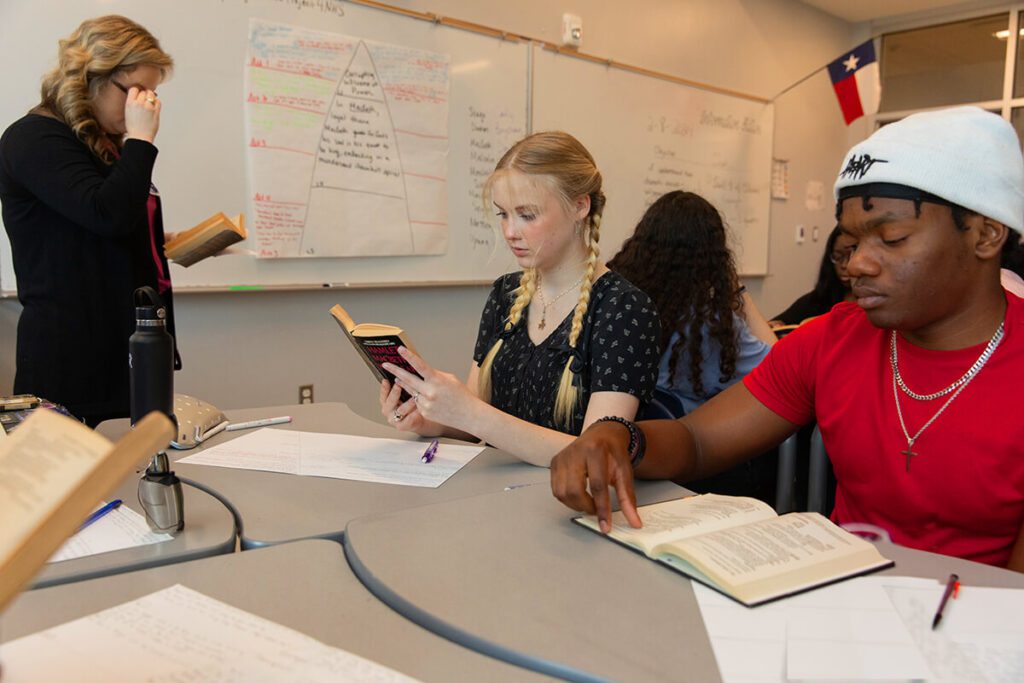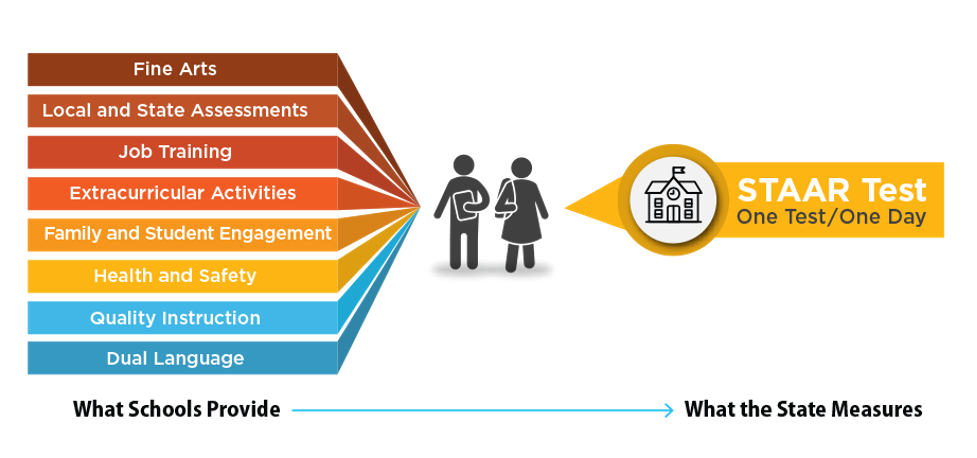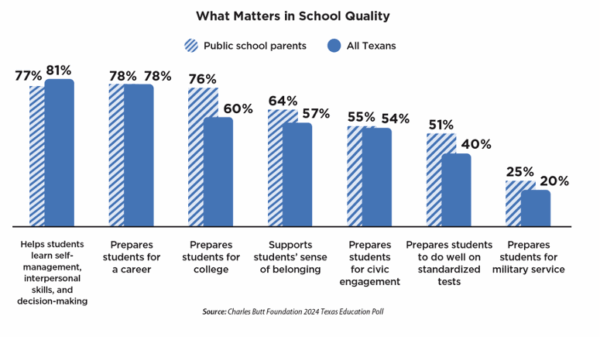Measure What Matters
The Latest on Assessment & Accountability
In the 89th Legislature’s second-called special session, lawmakers passed and Gov. Greg Abbott signed into law, House Bill 8 (HB 8), creating a new statewide Student Success Tool assessment system set to begin in the 2027–28 school year.
- HB 8 will require beginning-, middle- and end-of-year tests from Texas Education Agency (TEA)-approved vendors, though these assessments will not factor into A–F ratings.
- HB 8 also introduces standalone writing tests, eliminates the English II exam, limits district benchmarks, requires rescoring in some cases, and allows specific national exams and state exams to substitute for end-of-course tests. In addition, it directs TEA to adopt rules earlier and with greater transparency.
- Despite these adjustments, the bill leaves the foundation of the A–F accountability system virtually unchanged, with most campuses (elementary and middle school) still rated almost entirely on standardized test scores.
- HB 8 requires TEA to contract with a public institution of higher education to conduct a comprehensive study of new accountability indicators. The study, due to the Texas Legislature by December 2028, will examine whether performance ratings could be diversified beyond test scores to include measures such as advanced academic coursework, student engagement, workforce development, and parental involvement.


Where We Stand on Assessment & Accountability
The core shortcoming of our state’s accountability system is its overreliance on standardized test scores from a single test administered on a single day. Texas needs a system with more rigorous and accurate measures of school quality.
HB 8 identifies potential pathways to a broader set of school quality measures; however, initially, this review of a more robust system of school quality measures will take the form of a study of those metrics due to the Texas Legislature in 2029. It will be up to future legislatures to act decisively to include more measures in campus and district ratings.

Student Assessments Should Be Timely and Inform Instruction
HB 8 does not fundamentally change how the Texas accountability system works. Campuses and districts will continue to receive A through F ratings, primarily based on standardized test results, graduation rates, and college, career, and military-readiness indicators. About 80% of campuses —mainly elementary and middle schools —are still rated solely on standardized test performance, and HB 8 leaves that structure in place.
We heard from parents, educators, students, school boards, and other community leaders that they want the State of Texas to #MeasureWhatMattersTX.
Almost nine out of 10 Texas parents are satisfied with their child’s public school education, compared with just 76% nationally. The 2024 Charles Butt Foundation Texas Education Poll also shows that STAAR does not rank among the indicators Texans consider adequate for school quality.

Making an Impact
Texas schools help build well-rounded young people who will lead Texas and fuel our future workforce. Raise Your Hand Texas believes it’s time to move away from the test-centric system we use to grade our public schools. While HB 8 makes changes to the assessment and accountability system, it fails to enact the bold reforms that would position Texas as a national leader in assessment and accountability.
Learn more about our past and present work to #MeasureWhatMattersTX.
Read our report from the Measure What Matters Assessment & Accountability Council
Hear what Texas Voices are saying about the state’s assessment and accountability system.
Learn how high-stakes tests are only part of what happens in our schools.
Read Texas Monthly and learn how “How Texas STAAR Test Took Over Public School Culture.”





